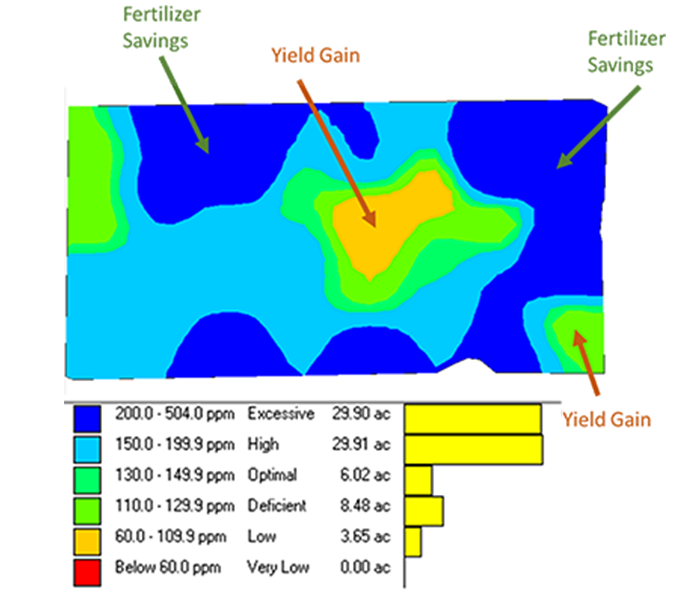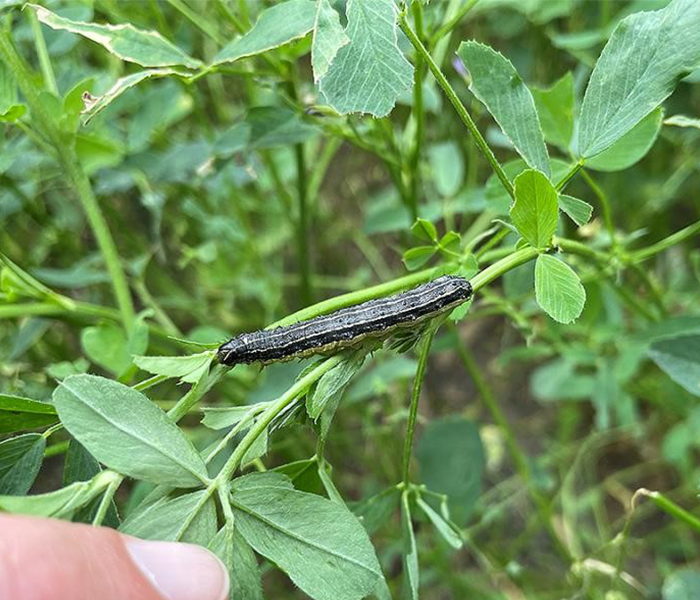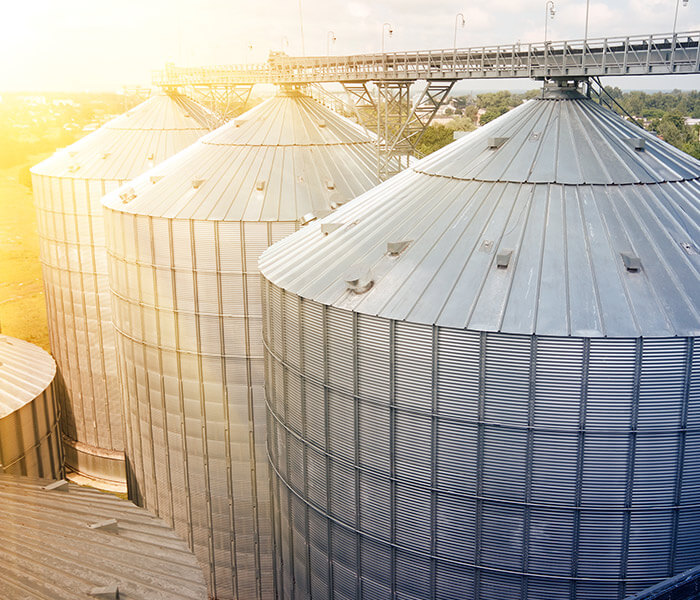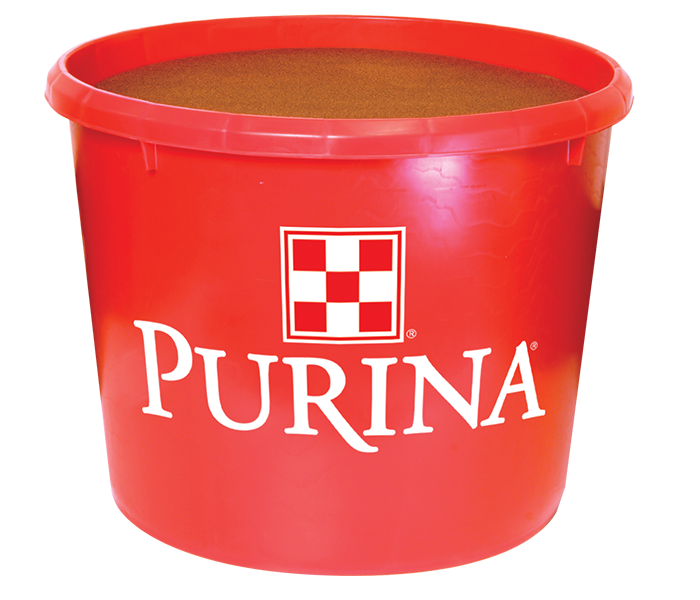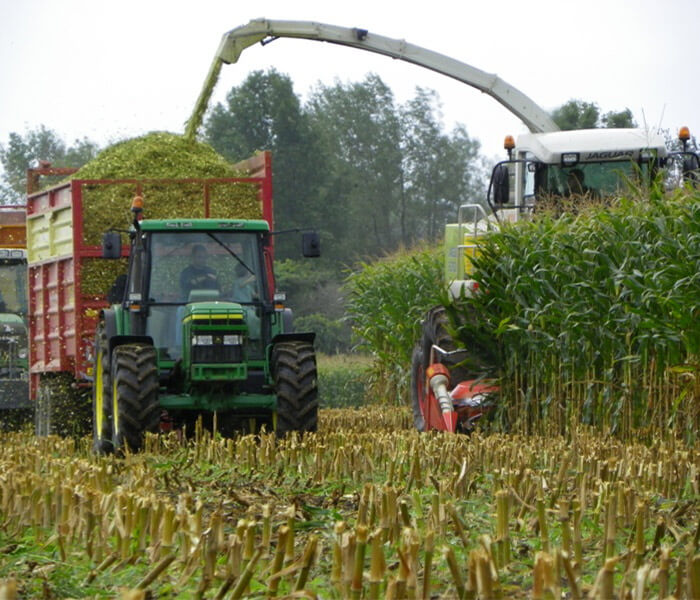Scout your alfalfa fields.
Fall Armyworms have begun to make an appearance in alfalfa fields in Southwestern Wisconsin, Northeast Iowa, and Northern Illinois. Fall armyworms range in size, so feeding will continue for some time yet. Small worms (the size of pencil lead) can feed for another 10-15 days especially in cooler temperatures. The final worm growth stage, (size of pencil eraser) is the most destructive stage, they can destroy and consume a lot of alfalfa very quickly. Here's what you should know:
Background:
- Fall armyworm larva often start feeding in “spotty” patterns. Make sure to check for the armyworms near fence lines, tree lines, and along buildings. The females often lay eggs in non-crop areas near food source and the worms advance quickly to alfalfa.
- Females can lay 1000-1200 eggs, so destruction in a small areas can be severe with little damage to the other areas. Females tend to swarm, which is a likely reason for why we have severe damage in local areas. Once worms start growing and feeding they will spread out and will destroy in a more typical marching and feeding in “front line” pattern or sometimes from a center point, forming a circular pattern.
Scouting for armyworms:
- Reports are as high now as 20-25 worms per square foot!! 2-3 per foot is considered economic level. Sweep nets with 2-3 in 10 sweeps, especially if small worms I would spray.
- Check “stubble” closely behind the leading edge of the feeding front closely. Late hatch worms can still be feeding on the alfalfa regrowth. This is very destructive to alfalfa survival.
- Fall armyworms are the “climbing” armyworms, so late in the day/early morning/nighttime is feeding time. During the daytime, especially hot days, the worms will be on the soil surface.
Treatment:
- Use higher water volume if spraying 18-20 inch or taller alfalfa.
- Insecticide choices: Grizzly Too or Arctic and include Master Lock for canopy penetration.
- DO NOT cut alfalfa now to control armyworms. September is the worst possible timing for the armyworms to attack and defoliate alfalfa. Do not add insult to this by cutting it.
Please contact your local Premier agronomist if you would lke your field scouted, or have concerns with Fall Armyworms.
Randy Welch
National Alfalfa Agronomist
WinField United
